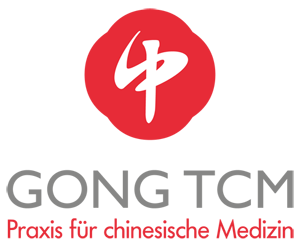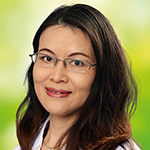Home – Indications – Women’s complaints
Menstrual disorders
(pain with breast tenderness, leakage, lumps, etc.)
In conventional medicine, menstrual disorders are not considered a disease, but rather a symptom of possible illnesses. In most cases, menstrual irregularities are hormonal and therefore do not pose a serious risk. However, the symptoms can become so severe that you are restricted in your everyday life.
Just like conventional medicine, Chinese medicine sees various causes for menstrual disorders. It could be an emptiness or just as easily a fullness. The distinction as to what exactly is causing the menstrual cramps is clarified in a detailed anamnesis consultation. Depending on the cause, a combination of acupuncture and herbs is used, with which very quick and good results can be achieved. The therapy helps the body to restore its inner balance.
Postpartum depression
During the postpartum period, a woman’s body should recover from pregnancy and childbirth. The body has to adjust hormonally and physically after the birth. During this time, a woman may experience so-called postpartum depression. From a conventional medical point of view, there are several causes of postpartum depression, ranging from the physical stress of childbirth to psychological reasons.
Chinese medicine attributes postpartum depression to a strong Yin and Qi deficiency. Qi and blood are needed to nourish the body physically and psychologically and to keep it in balance. During childbirth, the woman loses a lot of blood and energy. Treatment with acupuncture and herbs strengthens the yin (blood) and qi (energy) and thus harmonizes the imbalance in the body.
Menopausal symptoms
The menopause (also known as the climacteric) refers to the years of hormonal change in women. The most important hormonal change is the decrease in oestrogen, which is produced in the ovaries and regulates the menstrual cycle. It is a natural stage in every woman’s life and should not be regarded as an illness! Complaints that the menopause can trigger are hot flushes, sleep disorders, sweating, dry hair/skin/mucous membranes and many more.
According to TCM, all complaints associated with the climacteric and menopause arise from a decrease in kidney energy and kidney essence. The essence is our life energy and is located in the kidney. Due to the absence of menstruation, the body saves valuable yin energy, which should now be used exclusively for the woman’s spiritual development.
Vaginal mycosis (vaginal fungus)
Vaginal fungus is still considered a taboo subject, although there are many women who are affected by vaginal fungus. For a fungus to manifest itself, it needs a warm, moist environment, which is why excessive vaginal secretion is usually the cause of the fungus. An antifungal medication can provide relief.
Just like conventional medicine, Chinese medicine also sees too much moisture as the cause. A herbal treatment combined with acupuncture can eliminate the dampness and effectively treat itching and discharge.
Vaginal dryness
Vaginal dryness is a symptom that mainly occurs during the menopause. During the menopause, there is a decrease in the vaginal skin with a corresponding decrease in the ability to produce fluid.
From the point of view of Chinese medicine, dryness is explained by a decrease in yin substances. Yin in this sense stands for the liquid substances produced by the vagina. The treatment focuses on building up the yin substances. Chinese medicine can help to regenerate the substances and eliminate the symptoms of dryness.
Uterine prolapse (uterine prolapse)
Uterine prolapse is caused by an imbalance between the capacity of the pelvic floor and the actual strain placed on it. Physical exertion, obesity and childbirth in combination with congenital weakness of the connective tissue are particularly significant. One of the main symptoms of uterine prolapse is urinary incontinence (loss of the ability to control the bladder).
In Chinese medicine, the spleen has the task of supporting the connective tissue and strengthening the organs and physical structures. If the spleen is weakened by excessive physical exertion, malnutrition or other reasons, this can lead to “sinking spleen Qi”, which explains the prolapse. The focus of treatment is therefore on strengthening the spleen. To speed up the treatment, it is recommended to strengthen the pelvis through pelvic floor exercises and to change the diet at the same time.



